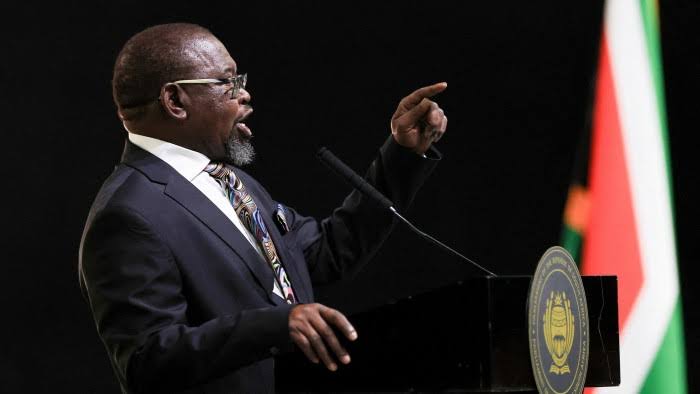South Africa’s Finance Minister Enoch Godongwana has withdrawn a proposed 0.5% increase in value-added tax (VAT), ending a fierce budget dispute that threatened the stability of the country’s coalition government. However, political tensions remain unresolved between the African National Congress (ANC) and its main coalition partner, the Democratic Alliance (DA).
Initially, the budget proposal included a 2% VAT hike, which was later reduced to 0.5%. The revised plan, set to take effect within days, was abruptly abandoned after legal pressure from the DA. The party challenged the parliamentary procedure used to pass the budget, leading to advice from government lawyers that the case might be lost in court.
DA leader John Steenhuisen welcomed the reversal but emphasized the need for more effective dispute resolution mechanisms within the Government of National Unity (GNU). He warned that simply replacing the DA with smaller opposition parties would not resolve ongoing disagreements and could destabilize governance.
Here:Hot 102.7 FM named South Africa’s fastest-growing media company
Despite the ANC’s move to secure support from other parties to pass the budget, Steenhuisen maintained that the ANC-DA coalition, supported by several smaller parties, remains the best formula for a functioning government. He also criticized the lack of consultation by President Cyril Ramaphosa in cabinet decisions, adding that a stronger and more collaborative approach is needed.
The DA argues that the proposed VAT increase would have placed an unfair burden on the country’s poorest citizens. While the withdrawal of the tax hike was welcomed, it leaves a R75 billion revenue gap in the national budget over the medium term.
The Treasury said its decision followed consultations with political stakeholders and careful review by parliamentary committees. However, DA officials insisted that the shift came only after legal proceedings revealed weaknesses in the budget’s passage.
While the immediate crisis may be over, questions remain about the coalition’s long-term durability and the ANC’s ability to govern effectively in a divided political environment.

